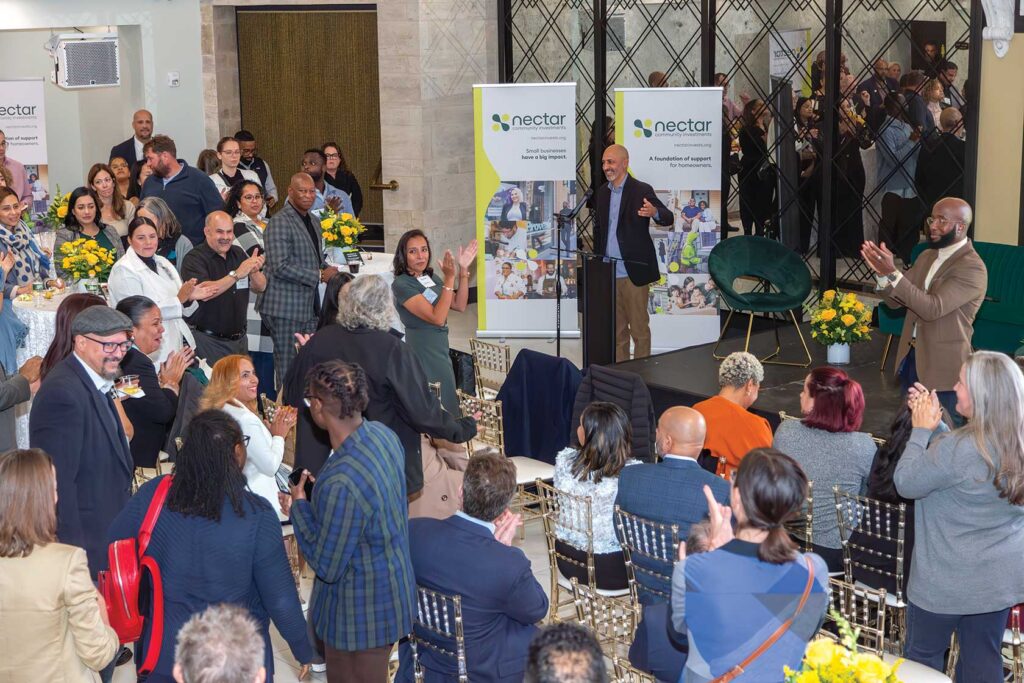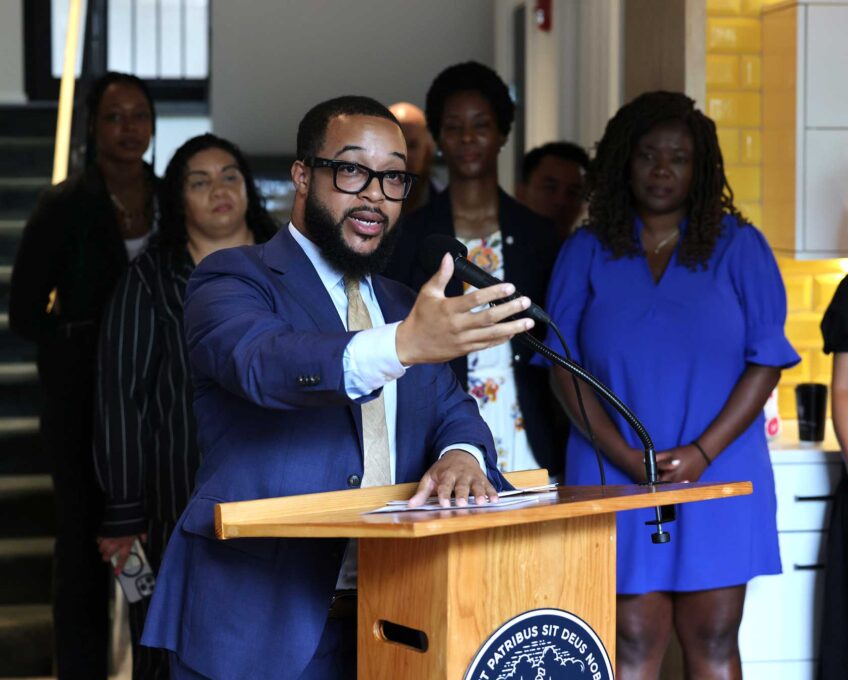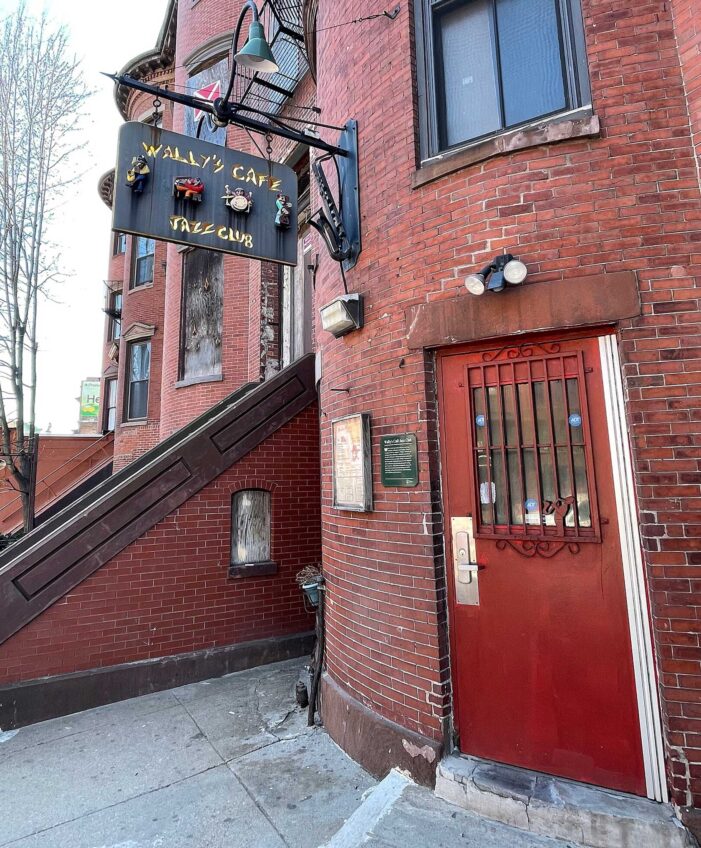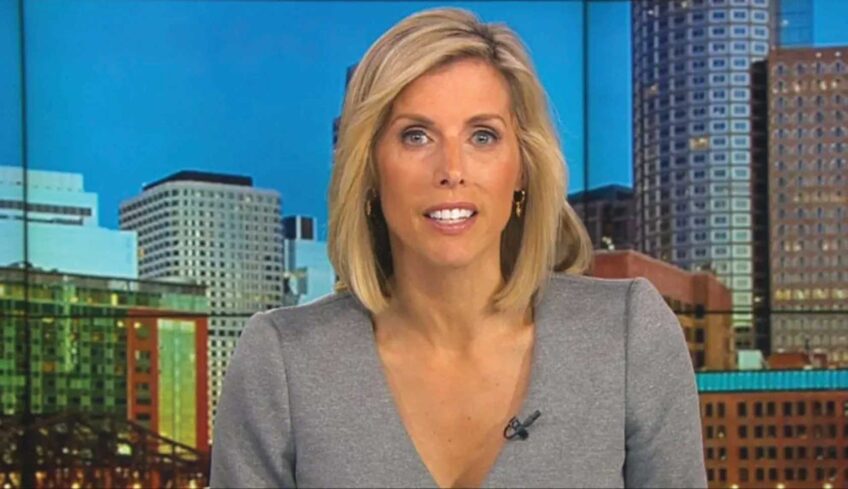MCCI and Foundation for Business Equity merge to become Nectar Community Investments

Banner Business Sponsored by The Boston Foundation

Formerly known as Mill Cities Community Investments and Foundation for Business Equity, they now have a new name that incorporates their mission and vision: Nectar Community Investments.
Executive Director Glynn Lloyd talks about why the two companies decided to make the name change.
“We merged organizations and we’re a new entity. And I think people, actually, all of our stakeholders, based on the old name, said, yeah, it’s time to give us a new name. And we came up with Nectar, because it symbolizes what we do, in a lot of ways. It’s really a life-giving ingredient, where it promotes the growth…it’s plants, it’s flowers, and so that’s what we’re doing. We translate that to how we work our capital, we try to move that ingredient out into our community. So, there’s this abundance of growth happening,” he said.
While Nectar primarily lends to small businesses that traditionally do not have access to capital, it has also added an equity arm on the small business side, so it can do equity investments.
Lloyd said that this new avenue is going well.
“It’s patient capital. Full disclosure, that’s the capital that helped the new ownership of The Banner acquire into what Mel Miller created. And so, that equity allows us to do those types of things. We’ve done a deal since then, and we have a deal on the horizon about to close before the end of the year, so we can do equity deals, (which is) different from debt,” he said.
He also shared Nectar’s other business initiatives, including management of the Business Equity Initiative for Diverse Developers, which is geared toward developers that the City of Boston has selected for its Welcome Home, Boston program.
The city has over 50 parcels of land and their whole goal is to get that out of their inventoryand give it to emerging BIPOC and women developers, providing them an opportunity to develop that land. We were selected to do some pre-development capital, which is critical. That’s usually the hardest capital to find, its unsecured, and it requires technical assistance to go with it. We actually brought in our (BEI) initiative approach, and so we’re working very closely with some of these developeras,” he said.
Lloyd said they just completed a pilot for their Solar Plus Programs on the residential side, where they have figured out a way to give low- and moderate-income homeowners access to subsidies around barrier mitigation and other things individuals can receive through Mass Save.
“We come and say, “We can support you on, maybe setting up the roof or all the way to the solar through a loan product.’ So that way, people who typically wouldn’t have the opportunity to own their own solar and decarbonize their home, have it now. …We piloted with three homes in the Lawrence area, and we’re looking to do more through what is a newly created program through though Mass Housing, which is called the Energy Saver program. And so that’s where the state has come in to help support more of that work,” he said.
Along with Nectar’s business initiatives, Lloyd was also named to the Energy Transformation Board by Gov. Maura Healey and Lt. Gov Kim Driscoll’s administration.
“We do need to think, we need to be comprehensive about how we start thinking about shifting our energy supply to more sustainable methods. And this is a cross sector of all kinds of experts, influencers, and leaders around how do we go about that?” he said.
Nectar recently received a $800,000 U.S. Treasury Community Development Financial Institutions Fund (CDFI Fund) Financial Assistance Award that has helped fund their work.
“We’re proud of that .…We, in some ways, are an asset manager, meaning we get lent money, by the banks and others. They’ll lend us money, and then we go and lend it out. So we try to get a lower rate for our cost, and then we pass on that discount. But also we put a little margin on our capital so we can operate right? No different from how banks work. And so the Treasury money is our best kind of money, because it’s unrestricted, it’s grant-like in a lot of ways”.
Lloyd said that the work Nectar does is beneficial to the community and much needed.
“I think the financial institutions and systems, the way they are, are biased, and a lot of people, our folks, who live in our communities, do not have the legal access. Therefore, platforms like networking investments are necessary so that capital can flow into these places or…individuals that don’t have a level playing field of access. .”
“We’re proud to say that we’ve since our existence, we’re north of $30 million—we’ve been able to move through our platform out into—whether it be entrepreneurs, mostly of color, to homeowners who are dealing with either lead issues or home improvement…the green and solar options that they should have. Stabilizing and supporting and increasing the assets, and talking about assets in terms of the balance sheet, of folks who typically don’t have the same access. This is one of the reasons why we’re trying to fight against this growing wealth divide in our community, and we’ve chosen business ownership, home ownership, and supporting the homeowners,” he said.






